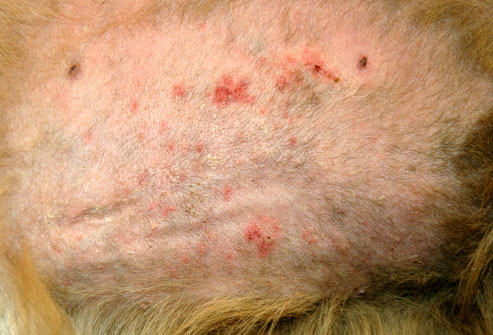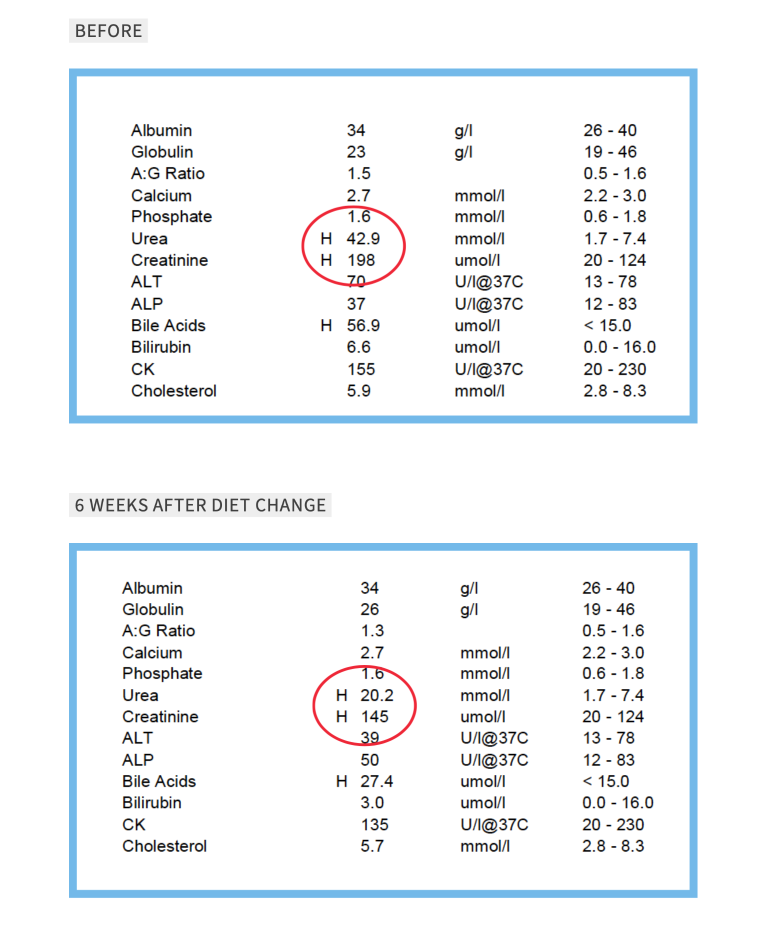Top Facts On Deciding On Dogs Supplements
Top Facts On Deciding On Dogs Supplements
Blog Article
Omega-3 Fatty Acids: How Do They Help Joint Health?
Omega-3 fatty acid, especially EPA (eicosapentaenoic) as well as DHA(docosahexaenoic) plays significant roles in maintaining joint health for cats and dogs. The way they can help is:
Anti-inflammatory Properties
Reduce Inflammation
Function: Omega-3 fatty acids have strong anti-inflammatory effects. They can reduce inflammation by blocking the production of pro-inflammatory Cytokines (and eicosanoids) and eicosanoids, which are a class of molecules.
Omega-3s can reduce joint inflammation and can alleviate swelling and pain due to conditions like arthritis. It can improve the quality of life of pets, by increasing their mobility.
Joint Lubrication and Health
Improved joint lubrication
Function The omega-3 fatty acid helps maintain the health synovial, the fluid that lubricates our joints.
Benefits: A better lubrication results in smoother motion of joints, and less friction. It will also decrease wear and tear to the cartilage. This is particularly beneficial to pets that have joint issues or are at risk of developing one.
Cartilage Protection and Repair
Cartilage Protection:
Function: Omega-3s aid in the health of cartilage through reducing the activity of enzymes that break down cartilage.
Benefits: Protecting the cartilage from degradation helps maintain joint integrity and helps slow the progression of joint disorders like osteoarthritis.
Immune System Support
Immune System Regulation:
Function The function of these fatty acids is well-known for their ability to regulate and balance the immune system.
Benefits An immune system that is healthy is better able to handle joint pain, while preventing the development of further inflammation and damage.
The comfort and ease of mobility are enhanced.
Improved Mobility
Function In decreasing inflammation and maintaining joints, Omega-3s can help pets move more easily.
Benefits: Senior pets as well as those suffering from arthritis tend to be more mobile and experience less pain. This allows them to lead a healthier and more active life.
Additional Health Benefits
Overall Health
Function The Omega-3 Fatty Acids promote cardiovascular, skin and hair health in pets.
Advantages: A pet with more bone and joint health is likely to be more active.
Questions and Use
Dosage and Administration proper dose of Omega-3s will depend on the size weight, size, and health issues. Always follow your veterinarian's advice or product instructions.
Omega-3s are available from fish oil supplements. These are a great source of EPA and DHA. Making sure you choose products specifically designed for pets is crucial to ensure safety and effectiveness.
Omega-3 supplements are generally safe for pets, but some may experience gastrointestinal upset or an unpleasant smell. Start with a smaller dose and gradually increasing it will aid in reducing side negative effects.
The article's conclusion is:
Omega-3 fatty oils can be beneficial to the health of joints in dogs and cats. Their anti-inflammatory effects, capability to boost cartilage protection, joint lubrication characteristics and immune system support all contribute to improved function of joints and reduce discomfort. Regular supplements can result in better mobility and a healthier, more active lifestyle for pets. Take a look at the most popular additional reading for treatment for cushings disease in dogs for more tips including pet echinacea supplements, pet supplements for rescue pets, pet bladder supplements, pet supplements for pets with brittle nails, natural cat supplements, mcdowells herbal, pet omega-3 supplements, dog supplements and more.
What Is The Way That Cat And Dog Kidney Failure Aided By Omega-3 Fatty Acids?
Omega-3 fatty acid acrs, in particular EPA(eicosapentaenoic ACR) as well as DHA (docosahexaenoic acr) aid in managing kidney disease by assisting in maintaining kidney health. What they do to help manage kidney failure is as follows:
Anti-inflammatory Properties
Reduction of inflammation:
Function: Omega-3 fats have a strong anti-inflammatory effect by reducing the production of proinflammatory cytokines.
Benefits: Omega-3s can reduce inflammation in the kidneys and can help improve kidney function.
Blood Pressure Regulation
Low Blood Pressure:
Function: Omega-3 fats help in regulating blood pressure via improved vascular function, and reduce inflammation throughout the body.
Benefits - Lower blood pressure can protect remaining kidney functions as well as slow the progression of kidney disease.
Proteinuria Reduction
Reducing Proteinuria:
Function: Omega-3s reduce the leakage of urine of proteins, also known as proteinuria. This is a very common problem with kidney disease.
Benefits: Reducing proteinuria is a way reduce the risk of further damage to kidneys and helps to preserve kidney function.
Glomerular Filtration rate (GFR) Preservation
Supporting Kidney filteration:
Function: Omega-3 fats are vital to maintaining the integrity of the kidneys' glomerular filtering process.
Benefits: Maintaining stable GFR levels is crucial for maintaining kidney function and also keeping the disease from progressing into chronic disease.
Appetit Stimulation and Nutritional Support
How to increase appetite
Omega-3s can improve the appetite of those suffering from kidney disease and help them to eat more.
Benefits: A better diet can support overall health and assist in maintaining the weight of your body and muscles which is essential for pets suffering from kidney disease.
Cardiovascular Health
Supporting Heart Health
Function The Omega-3 fatty acids are beneficial to the cardiovascular system by decreasing inflammation and blood pressure and improving the lipid profile.
Benefits Increased cardiovascular fitness can lower the risk of kidney failure complications such as heart diseases and also improve your overall health.
Antioxidant Effects
Reducing Oxidative Stress:
Function: Omega-3 fats possess antioxidant properties, which aid in reduce oxidative stresses in kidneys.
Benefits: Reduced oxygenative strain can help protect kidney cells from damage and encourages improved kidney function.
Tips for Use
Dosage and Administration: The correct dose of omega-3 fatty acids is based on the pet's size weight, size, and health issues. It is important to follow prescriptions of your veterinarian or follow the label instructions. Omega-3s are found in fish oil supplements for pets.
Formulations: Omega-3 supplements for pets are available in various forms, including capsules, liquid oils, and chews. Selecting a high-quality supplement is vital to ensure the safety and effectiveness.
Omega-3 supplements can trigger stomach upsets in some animals. You can reduce side negative effects by starting with a lower dosage and increasing it as time goes by. Be aware of any reactions that are not expected, such as nausea or diarrhea.
Conclusion
Omega-3 fat acids have substantial benefits when it comes to treating kidney failure, both in cats and dogs. Their anti-inflammatory, blood pressure-lowering, proteinuria-reducing, and appetite-stimulating properties help support kidney function and overall health. Regular intake of omega-3s may reduce the risk of progression of kidney disease, improve quality of life, and boost the health of pets suffering from kidney failure. Check out the most popular consultant on best vitamins for dogs for blog advice including pet nutrition supplements, pet red clover supplements, pet supplements for pets with medical conditions, pet supplements for pets with eye problems, pet supplements for pets with fear of pain, pet vitamins australia, herbal supplements for cats, pet supplements for pets with weak bones and more.
How Can Cat And Dog Yeast Infections Helped With Apple Cider Vinegar?
Apple cider vinegar (ACV) is often recommended as a natural remedy for yeast illnesses in cats and dogs. Acidity in ACV can lead to side effects and is not advised without the supervision of a veterinarian. ACV could help in treating yeast infections.
Antifungal Properties
Acidic Environment
Function: ACV is acidic, with a pH that is typically between 2.5 and 3. This acidic atmosphere can make it difficult for yeasts to reproduce.
Benefits of applying ACV or adding diluted ACV to the bathwater of your pet can reduce the yeast overgrowth in the ears and skin.
Skin pH Regulated
Balancing Skin pH:
The function: ACV is believed to assist in the balance of pH levels, which can support the skin's barrier to keep it healthy and stop yeast growth.
Benefits - Maintaining an appropriate pH balance for the skin is an excellent way to keep yeast infections at bay and ensure overall skin health.
Anti-inflammatory properties
Reduction of Inflammation:
ACV's anti-inflammatory properties, mild and gentle, is its primary function.
Benefits Reduce inflammation and ease symptoms such as itching, redness and discomfort that can be caused by yeast infections.
Support for Digestive Health
Internal Use
ACV may promote digestive health, and help balance the gut microbiome when consumed.
Benefits of a healthy gut environment: By supporting immunity and microbial balance A healthier gut can reduce yeast overgrowth.
Questions and Use
Topical application: Apply ACV in diluted form with water (typically 1 part ACV for 1-2 parts water), as a spray or rinse for the affected areas of the skin or ears. Avoid applying ACV directly on open skin wounds or other sensitive regions.
In the event of considering an internal use, make sure to consult a doctor first. ACV must be extremely dilute (e.g. 1 teaspoon to 1 tablespoon for every cup of water) and used in small amounts to avoid any gastrointestinal irritation or upset.
Monitoring: Look for indications of allergic reactions or irritation while using ACV topically. Stop using it in the event that you experience any adverse effects.
A consultation with a veterinarian Before applying ACV to treat yeast infections, consult with your vet. They can offer advice regarding proper dilution techniques, methods of application, and possible risks dependent on your pet's individual medical needs.
You can also read our conclusion.
Although apple cider may be beneficial in treating yeast infections in dogs and cats, it must be used with caution under veterinary supervision. Acidity in ACV may create a toxic environment for yeast growth on the ear and skin as well as provide mild anti-inflammatory effects. However, proper dilution and careful application are essential to avoid irritation or adverse reactions. Veterinarian guidance assures that ACV is used safely and efficiently as a part of a comprehensive treatment plan to treat yeast-related infections in animals. Have a look at the best dog coughing advice for blog recommendations including pet calming supplements, pet joint supplements, pet supplements for pets with fear of handling, pet plant protein supplements, pet supplements for pets with fear of mirrors, pet supplements for senior pets, pet quercetin supplements, pet supplements for active pets and more.